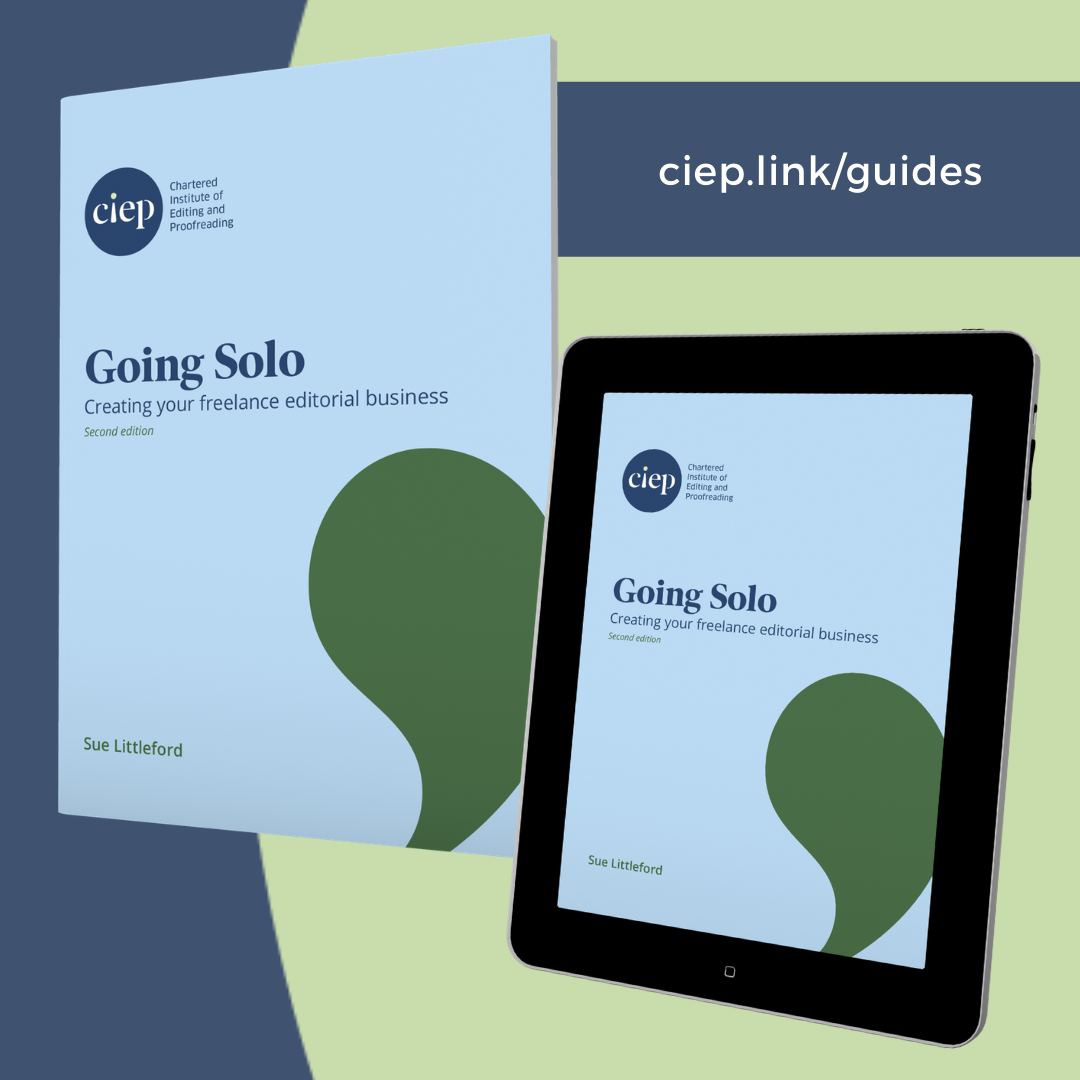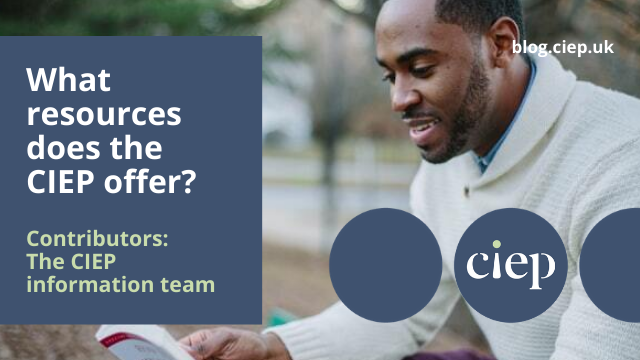The CIEP offers a wide range of support and professional development material on proofreading and copyediting. In this post the Institute’s information team summarises the resources available to our members and to the public.
Here’s what we’ll be looking at in this post.
- CIEP resources
- guides
- fact sheets
- focus papers
- the CIEP blog
- newsletters and
- what’s coming up in 2022
CIEP resources
Our information team works with experienced editorial professionals and industry leaders to provide trusted advice and practical knowhow on working with English language texts. These range from tips on getting started, gleaned from practitioners’ years of experience, to the fine details of editorial markup and proofreading etiquette, plus insights into evolving usage and when to recognise it’s an ‘it depends’ situation rather than a rule of grammar.
Guides
 Our guides provide a basic introduction to the various skills and knowledge needed to work as an editorial professional. Digital versions of all the guides are free for CIEP members. They encompass such diverse subjects as editing cookery books, pricing freelance projects, working with self-publishers, and editing scientific research articles.
Our guides provide a basic introduction to the various skills and knowledge needed to work as an editorial professional. Digital versions of all the guides are free for CIEP members. They encompass such diverse subjects as editing cookery books, pricing freelance projects, working with self-publishers, and editing scientific research articles.
Fact sheets
Fact sheets are brief introductions to a topic or issue related to practical aspects of editing or proofreading, or working as an editor or proofreader. They aren’t comprehensive but give tips related to the topic and a list of further resources. There are currently over 20 factsheets and the number is growing; topics range from macros and gendered language to scope creep and emotional wellbeing.
Editors work on all kinds of text, from marketing materials, theses and reports to blogs and websites. However, a core area of work for many editors is still books, for print or online publication. All books are different, but many adhere to a standard basic structure. This helps the author and the publisher order the information, but more importantly it helps the reader navigate the finished book, making it a truly useful and accessible resource.
FREE DOWNLOAD: Anatomy of a book
As soon as you agree to take on work for a client, or to complete a task for a colleague, you are under an obligation to ensure the work is completed as agreed. But whether you are a business owner or an employee you will always have other tasks on your to-do list: juggling expectations and moving deadlines, managing yourself and others, chasing invoices and marketing your services, as well as coping with personal matters that may have an impact on your capacity to work. Do you have a plan for how to cope if disaster strikes?
MEMBER RESOURCE: Building a business resilience and disaster plan
Focus papers
Focus papers explore an aspect of the English language or editorial practice that:
- challenges assumptions
- offers a new perspective on, illuminates or addresses a problem
- helps readers better understand the value of professional editing, either their own practice or as potential users of editorial services (or both!).
They are written by well-known and expert names in their field, including CIEP honorary president David Crystal, linguist Rob Drummond and editor Sarah Grey.
If only the whole world had a language in common, war could be avoided. Thatʼs what LL Zamenhof thought when he developed Esperanto in 1887. Esperanto wasnʼt meant to replace anyoneʼs home language, but it would create a common ground for people from different backgrounds. It would make communication easier and more direct, reducing the need for go-betweens like translators and interpreters.
FREE RESOURCE: In a globalised world, should we retain different Englishes? by Lynne Murphy
Serendipitously, just hours after the CIEP asked me to write about whom, an email landed in my inbox. It included this: ‘Patients whom have already received notification …’.
MEMBER RESOURCE: To whom it may concern, by Jeremy Butterfield
The CIEP blog
The CIEP blog aims to provide useful and entertaining articles for anyone interested in editing, proofreading, the English language, starting and managing an editorial business, and publishing more widely.
Editorial judgement calls for an understanding of context, for knowing your stuff when it comes to technical matters (whether that’s the finer points of grammar or the finer points of Word or the finer points of inorganic chemistry, if that’s your niche), for knowing when to press ahead and when to leave well alone, and for knowing what resources you need and how to use them. Each of these skills can also be applied to the way you run your business.
How can we apply editorial judgement to our businesses?, by Sue Littleford
Newsletters
We produce two bi-monthly newsletters: The Edit for members, and Editorial Excellence for anyone who wishes to subscribe. Both highlight new resources and blog posts on a particular topic or theme.
Coming in 2022 …
And there’s more to come … In 2022 we hope to publish guides on developmental editing, legal editing, and corporate and marketing communications. There will be fact sheets on keyboard shortcuts, editing LGBT+ content and medical editing, and focus papers by Laura Summers and other well-known names. No doubt the wise owls will appear more than once on the blog, alongside regular contributors including Sue Littleford and Andy Coulson.
Wrapping up: CIEP resources
Now you know what CIEP resources are available, have a look at the ones that are relevant to you. Don’t forget:
- You can download free fact sheets and focus papers (and even more if you are a CIEP member).
- Guides provide handy introductions to the skills and knowledge needed to work as an editorial professional.
- The CIEP blog is updated with new content regularly.
Which CIEP resource has been most useful to you so far? Which one are you planning to read next? Let us know in the comments. If you don’t already receive our Editorial Excellence newsletter, click on the button below to subscribe.
About the CIEP information team
Liz Dalby, Cathy Tingle, Julia Sandford-Cooke and Harriet Power are the CIEP’s information commissioning editors. If there’s a topic that you think could be covered in a blog post, fact sheet, focus paper or guide, drop the team a line at infoteam@ciep.uk.
 About the CIEP
About the CIEP
The Chartered Institute of Editing and Proofreading (CIEP) is a non-profit body promoting excellence in English language editing. We set and demonstrate editorial standards, and we are a community, training hub and support network for editorial professionals – the people who work to make text accurate, clear and fit for purpose.
Find out more about:
Photo credit: man reading by Tamarcus Brown on Unsplash

